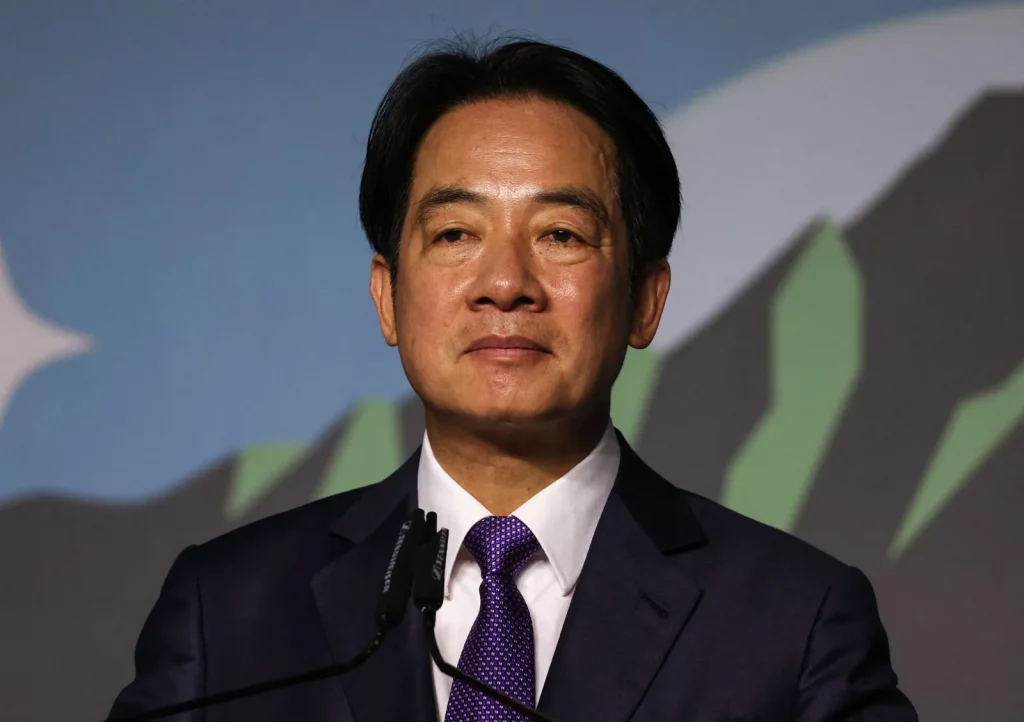O minous signals have started emanating from Taiwan hours after the new President Lai Ching-te of the Democratic Progressive Party (DPP) took charge. He had won the elections with the pledge to defend Taiwan against China’s aggrandisement, while cautiously following the policy of maintaining status quo which means he would not openly work for ending Chinese control. Taking advantage of DPP’s minority position in the legislature, two Opposition parties – Kuomintang (KMT) and Taiwan People’s Party (TPP) –, known for their pro-Chinese politics, have closed ranks to get a controversial legislation passed that is feared to make the country go Hong Kong way where China has taken firm control. Thousands of people of Taiwan, including its youth, demonstrated around the Taiwanese legislature recently in protest against the discussion on the proposed legislation that began at 9 a.m. and ended shortly after midnight.
The demonstration was organized by over 40 groups, many of which were key players during the 2014 Sunflower Movement involving a month-long occupation of the Legislative Yuan, as Taiwan’s legislature is known, in protest against a free trade agreement with China that the then-ruling KMT hoped to pass. In many ways, the demonstration was a replay of the Sunflower Movement as there is considerable public outrage over actions by the KMT. The trigger this time is the amendments to the law moved by the KMT and its political ally, the TPP, that would allow legislators to summon private individuals or government officials to face questioning. Defiance could lead to criminal charges of “contempt of the legislature,” with a penalty of up to three years in jail. What has shaken the people is the provision that those being questioned would be required to give answers even if they involved state secrets, such as details of diplomatic agreements or arms deals or trade secrets. Moreover, they would not be allowed to ask counter-questions during such interrogations. Any attempt to do so would entail punishment by a fine of 200,000 Taiwanese dollars (around US $ 6,200).
The measures are being perceived by civil society groups to be akin to national security legislation passed by Hong Kong after 2019. Critics fear the amendments would be used by the KMT and TPP to take on political opponents or force the disclosure of confidential information compromising national security. Several recent controversies have involved KMT legislators disclosing such information. For example, Ma Wen-chun, appointed to co-chair the legislature’s defence committee by the KMT, has been accused of leaking details of Taiwan’s domestic submarine programme to the Chinese and South Korean governments.
The KMT’s move for new powers has gained momentum after previous attempts by the party to revive the controversial Special Investigation Division (SID) of the Ministry of Justice and to place the SID under the direct control of the legislature rather than law enforcement. The SID is controversial because of its use under past KMT administrations to target political opponents, as in the wiretapping of KMT majority speaker Wang Jinpyng at a time when he was distancing himself from then-President Ma Ying-jeou. The SID was dissolved by Tsai Ing-wen when she took office.
The KMT’s attempt to increase the powers of the legislature is being construed as a ploy to enable the legislature to have power over the executive branch of government. For critics, this is another way to grab power by the KMT as it had done in the past.
The Sunflower Movement is considered one of the largest social movements in Taiwanese history, which peaked with about 500,000 taking to the streets of Taipei on March 30, 2014. Many of the participants in the demonstration this time around were connected to the movement.
The danger that the development poses to Taiwan and the rest of the world is that the legislative manoeuvring sets the stage for stormy and contentious next four years, with the KMT and TPP capitalizing on their advantage in the legislature to try and pass measures crippling Lai’s administration. The new President has sensed it and adopted a conciliatory tone vis-a-vis China asking the latter to cooperate with him for mutual interest. In the same breath, he has made it clear to China that he would continue his predecessor’s policy of working closely with the US to ward off any Chinese attempt to take the country over by force. With this backdrop, any adventurism by China would prove disastrous for the peace, stability and economy of the region and the rest of the world.
